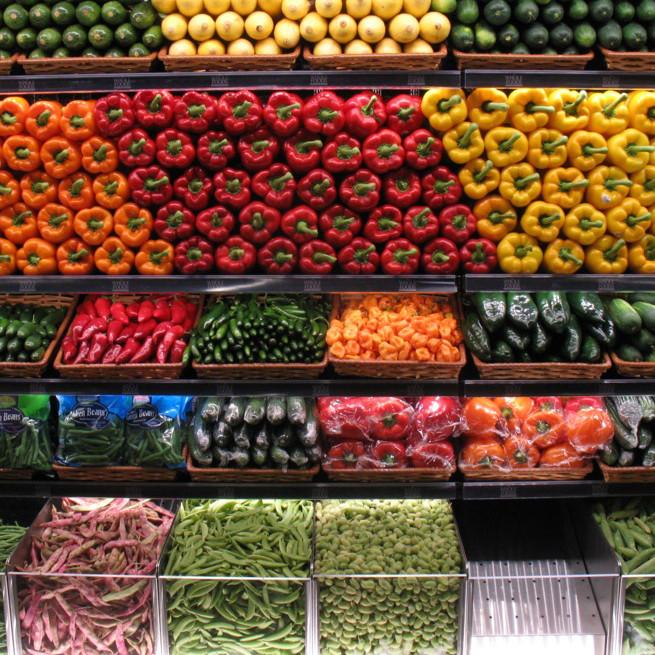
Eating Whole Foods 101
Share
Processed foods are some of the worst foods that can be added to a diet. Fresh fruit winds up replaced with sugary drinks, high-quality vegetables get replaced by something fried in oil, and the incredible power of plant protein is hidden behind milk-based substitutes and sickly, factory-farmed animals that live in filth. In this light, many modern foods have come to resemble a form of poison that slowly fills the body with harmful substances while reducing the number of beneficial substances that are consumed. There isn't enough room.
A great measure of how healthy something is can be found in how close it is to natural. Very few people on this planet are arguing about how unhealthy a banana is. To the human body, a banana smells good, tastes good, digests well and provides concentrated nutrients that are extremely beneficial. Banana flavoured candy, bread, muffins and other abstracts of the fruit cannot possibly compare to what nature has created. The candy has no fiber or moisture, and its sugar composition is nowhere near as ideal as the bananas. The bread might have fiber and be fairly moist, but it was still made with processed grains that are nutritionally unideal.
This understanding of food points to processing as a problem for the human body. What is quite interesting is that we share the planet with all other animals and forms of life, and they may live in high health with what is provided by the Earth. Humans have taken exception and decided to eat foods provided by other humans. The problem with this is that sophistication and intelligence of human processed foods cannot compare to the structural density and power of food as it is found in nature. Food in nature is always connected to life: fruit is a seed pod connected to a living plant, vegetables themselves are a living structure, and even animal flesh is connected to something that's alive.
In comparison, foods found in the grocery store are often wrapped in plastic packages and cardboard boxes. These foods have expiration dates far beyond what is found in nature and often are produced with at least a dozen ingredients. Yet in nature, the cows eat grass, the lions eat gazelles and the monkeys eat fruit and leaves. They do not need additives, seasoning or any other major modification to enjoy them. When we look to nature, the suggestion we are pointed towards is that minimal modification is ideal.
However, it can be quite difficult to entirely eliminate processed foods when so many of them become a dietary staple or emotional preference. The best strategy is one that involves a conscious step forward, an understanding of foods that do not serve the body and a sincere attempt to eliminate the processing of food.
What is a Processed Food?
A processed food is a source of food that has been modified to make it more edible, tasty, inexpensive or filling in order to appeal to customers. The big issue happens when foods are produced behind closed doors and for the sake of profit. Soybeans have their oil extracted and their pulp modified and sold off to whatever bidder meets the price. Wheat is dissected into a dozen parts, modified at every stage of the chain, and consumed in a manner that is entirely inconsistent with the way that living beings of the Earth consume it as a food source. Corn is extracted for oil, starch, sugar, syrup, and whatever else can be squeezed out of it for profit. This relentless desire for profit exists in boxed, baked, wrapped and frozen foods, and society has grown unconscious of what food really is in nature. They are usually derived from cheap plant matter, but they are also sometimes purely a chemical additive.
Through a simple process of common sense, it would stand to reason that people eating highly nutritious foods would be the best off in terms of health, longevity, and energy. The have the most nutrients, their diet satisfies their anatomy, and they reduce the amount of unwanted material entering the body. In nature, this is done through instinct and learning: the horses know to eat grass, but they can also learn to eat other foods from watching the herd. This implies that at some point in the history of society, humans learned to eat food that is a cross-mix of ingredients and chemicals. Ingredients and chemicals are not food to anything else in nature, but they can still be edible. Plenty of animals die by mistakenly eating the wrong foods, and it is wise to look to nature for these matters of health and vitality.
What is a Whole Food?
A whole food is a food that is primarily unmodified from the way it appears in nature. We exist within nature and are bound by its rules, and one of those rules is that the Earth's ecosystem provides our food. Grocery stores and other forms of exchange are relatively modern inventions, and they only serve as a means of procuring food. Ideally, a whole food is not cooked, seasoned, boiled or otherwise modified from the way that it appears in nature, but some exceptions apply in the event of necessity.
Potatoes, for example, are a whole food. As they are, they are inedible, but they become edible after simply raising their temperature beyond a certain point. They are not palatable to most people without salt, sauce or other fixings, and so they could be considered as a poor food source if alternatives exist that are more ideal. A banana offers many of the same benefits of a potato, as they both primarily give calories in the form of starches. However, a banana is tasty on its own; its sugar and moisture content is more suited for the human body.
The potato is still very much close to its natural state and still falls under the category of a whole food, but is is nutritionally less preferable than something that does not need to be cooked to provide the same nutritional content. All cooking implies that something has been denatured within the food, and cooking itself is an invention that has never been proven to be required to sustain health. In fact, many of the world's human tribes that do not integrate with society still eat meat in its raw form, directly from the animal and almost immediately after it has been killed. They do not tend to survive as long as the vegetarian or plant-based societies of Asia, but they are still far healthier than western civilization. Many of these tribes also eat meat out of necessity, as they live in areas that are either too hot or too cold to sustain a nutritionally complete plant-based diet.
